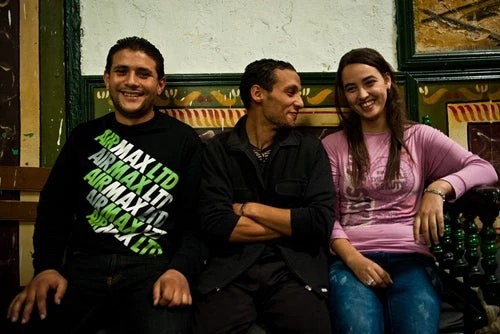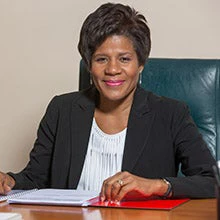 Driven by the conviction that a solid partnership cannot be built unilaterally from Washington, we visited Tunisia to engage in consultations on the ground, on the new partnership strategy between Tunisia and the World Bank Group. Despite the convulsions caused by the attacks on the Bardo museum, in Sousse and just recently in the center of Tunis,
Tunisia is continuing its process of transition and is committed to its success . With the award of the Nobel Peace Prize to the Tunisian Quartet, made up of the General Labor Union of Tunisia, the Employers’ Federation, the Tunisian Human Rights League and the National Order of Lawyers, Tunisia has demonstrated that it has the heart of a champion. What a distinction for one of the most promising transitions in the Middle East and North Africa region!
Driven by the conviction that a solid partnership cannot be built unilaterally from Washington, we visited Tunisia to engage in consultations on the ground, on the new partnership strategy between Tunisia and the World Bank Group. Despite the convulsions caused by the attacks on the Bardo museum, in Sousse and just recently in the center of Tunis,
Tunisia is continuing its process of transition and is committed to its success . With the award of the Nobel Peace Prize to the Tunisian Quartet, made up of the General Labor Union of Tunisia, the Employers’ Federation, the Tunisian Human Rights League and the National Order of Lawyers, Tunisia has demonstrated that it has the heart of a champion. What a distinction for one of the most promising transitions in the Middle East and North Africa region!
It is within this context and at a key juncture in the country’s history that the World Bank Group is once more showing that it is a committed partner in the transition process , and is preparing the New Strategic Partnership Framework for 2016-2020, in coordination with the government.
As the broad lines of the strategy cannot be developed without consultation with the Tunisian people, I decided to join my country team and go to meet the people of Tunisia to listen to their hopes and expectations. Our first stop was in the Zaghouan region. My meeting with members of civil society at the headquarters of the Zaghouan governorate was a very valuable experience. To have the privilege of engaging in dialogue with the residents of El Fahs, Bir M’Chergua and Hammem Zriba, was an unparalleled opportunity to help me better understand the constraints faced by the inhabitants of one of the most disadvantaged regions of Tunisia. Our discussions centered around one of the pillars of the new Strategic Partnership Framework. One of the fundamental goals of Bank support is to promote greater social inclusion and the reduction of economic vulnerability .
Identifying ways to increase the social inclusion of young people is one of the cross-cutting axis of this pillar and one of the thematic areas particularly close to my heart. The incredible potential of vibrant and creative youth can only bring pride to a country whose history is rooted in antiquity. The young people of Zaghouan were fully prepared to live up to the frustrated dreams of Mohamed Bouazizi . Of all the things that they told me, one phrase still resonates: “Give us an opportunity to seize the initiative and act.” It is like a heartfelt cry to a system that for too long has relegated them to the sidelines of the development process. Other important messages were shared; on equality of opportunity, particularly for the youth, better education, access to job opportunities, and support for entrepreneurship, among many other demands expectations.
Tabulbah is a locality about an hour’s trip from Beja and was the second stop in our round of consultations. This village, located high in the mountains, has become known for its ancestral artistry in the distillation of essential oils. At the village distillery, we heard the stories of six women, whose testimonies serve as yet another lesson in the tenacity of the Tunisian people. With no support other than their own drive and initiative, these women are fighting to obtain organic certification so that they may market their products on a bigger scale, or even export them. These different stories combined are another testament to the resilience of the people of Tunisia .
I left Tunisia with a sense of conviction and hope for the country. While consultations continue for the preparation of the new Strategic Partnership Framework, the World Bank Group will seek to make a positive impact in this next, historic stage . Stories like those of the young people of Zaghouan and the women producing essential oils in Tabulbah will continue to light the way for our engagement with the people of Tunisia in their march toward the future.


Join the Conversation